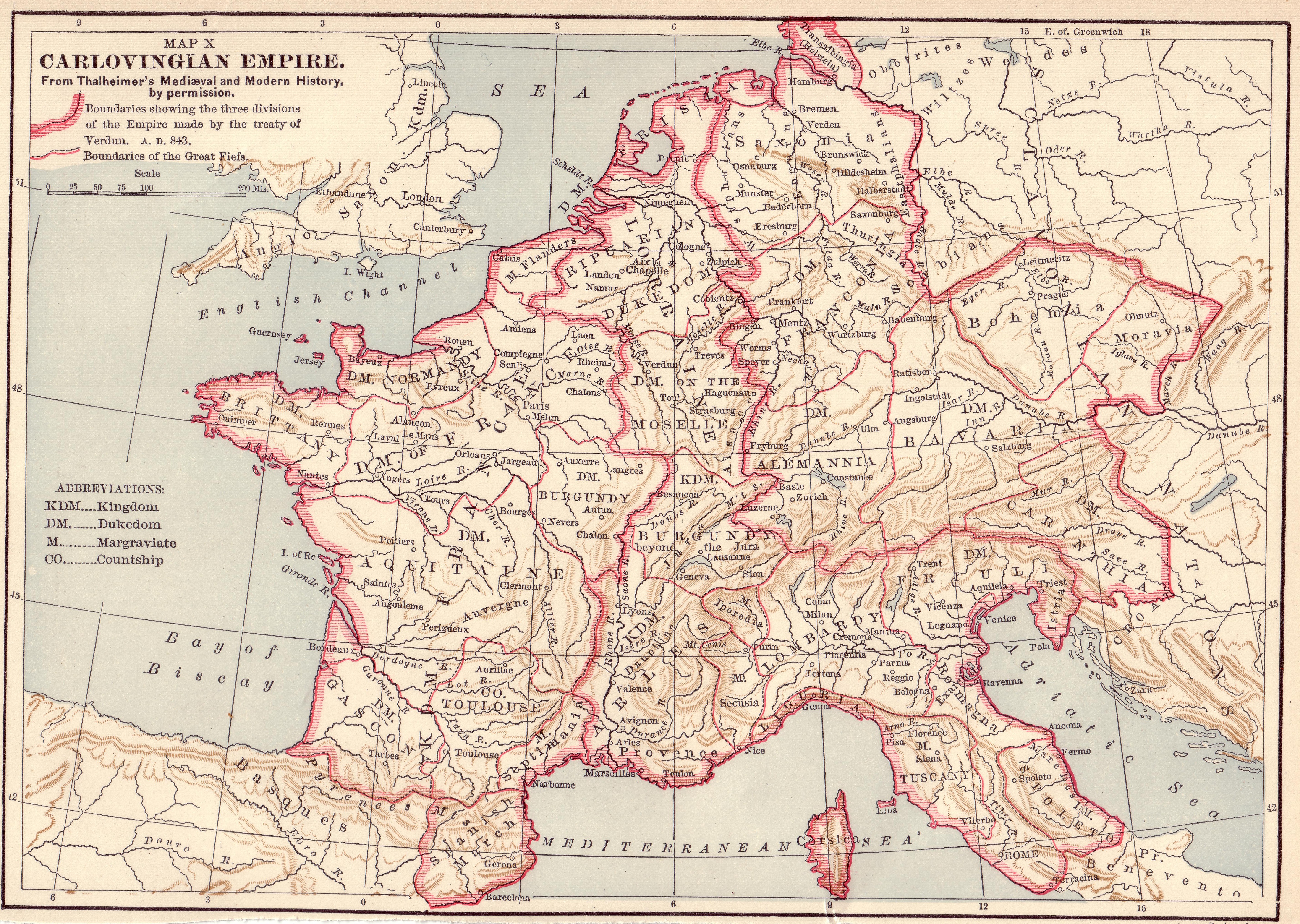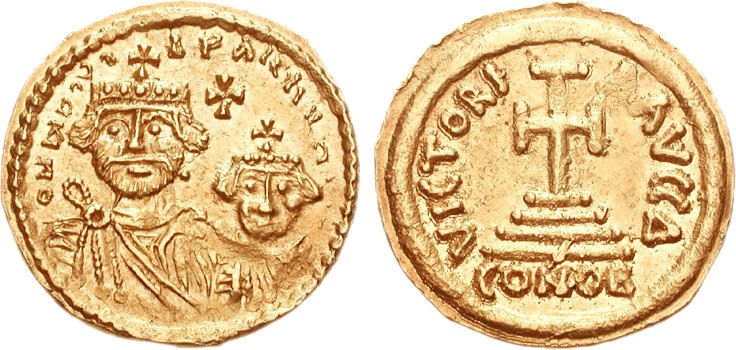|
Gerold, Prefect Of Bavaria
Gerold (died 1 September 799) was an Alamannian nobleman who served the Frankish King, Charlemagne, as Margrave of the Avar March and Prefect of Bavaria in what is now South-Eastern Germany. Gerold played a significant role in the integration of Bavaria into the Frankish Kingdom during Carolingian expansion in the late 8th, and early 9th centuries. Gerold both aided the continuity of Agilofing rule of Bavaria, as well as took steps to integrate Bavarians into the wider scope of the Frankish Kingdom. Gerold was related both to the Agilofing family, the ruling class of Bavaria, as well as the Carolingian family. The Agilofings had ruled Bavaria since Duke Garibald I in 548. Gerold was born into the Agilofings, and his sister Hildegard was married to Charlemagne in 771. From these familial connections, he was appointed Prefect of Bavaria following the deposition of Duke Tassilo III in 788. Gerold was heralded as a superb military commander, giving rise to his promotion to Prefect a ... [...More Info...] [...Related Items...] OR: [Wikipedia] [Google] [Baidu] |
Gerold Der Jüngere , municipality in the district of Bludenz in Vorarlberg, Austria
{{given name ...
Gerold is a given name. Notable people with the name include: * Gerold Bührer (born 1948), Swiss politician and member of the National Council (1991–2007) * Gerold of Cologne (1201–1251), martyr and saint * Gerold Löffler (born 1967), Swiss bobsledder who has competed in the early 1990s * Gerold Schwarzenbach (1904–1978), Swiss chemist * Gerold Späth (born 1939), Swiss poet and writer * Gerold of Vinzgouw (c. 730 – 784/786 or 795) was a count in Kraichgau and Anglachgau * Gerold, Prefect of Bavaria (died 799), Margrave of the Avarian March and Prefect of Bavaria See also *Sankt Gerold Sankt Gerold is a municipality in the district of Bludenz (district), Bludenz in the Austrian state of Vorarlberg. Population References Cities and towns in Bludenz District {{Vorarlberg-geo-stub ... [...More Info...] [...Related Items...] OR: [Wikipedia] [Google] [Baidu] |
Eric Of Friuli
Eric (also ''Heirichus'' or ''Ehericus''; died 799) was the Duke of Friuli (''dux Foroiulensis'') from 789 to his death. He was the eldest son of Gerold of Vinzgouw and by the marriage of his sister Hildegard the brother-in-law of Charlemagne. Background An elegy composed by Paulinus II, Patriarch of Aquileia on the occasion of the death of his friend Eric, reveals that Eric had been born at "''urbs dives Argentea''", a Latin name of Frankish Strasbourg."''Versus Paulini de Herico duce,''" in ''L'Oeuvre Poétique de Paulin D'Aquilée.'' Edited by Dag Norberg (Stockholm: Almquist and Wiskell International, 1979), 100. The elegy and another work of Paulinus called the ''Liber Exhortationis,'' a work which draws from the Bible and certain Fathers of the Church to offer instruction on how to live a morally upright Christian life while carrying out secular duties, indicates that Eric was a pious Catholic. Eric was appointed to the Carolingian Duchy of Friuli in 789, about two years af ... [...More Info...] [...Related Items...] OR: [Wikipedia] [Google] [Baidu] |
799 Deaths
__NOTOC__ Year 799 ( DCCXCIX) was a common year starting on Tuesday (link will display the full calendar) of the Julian calendar. The denomination 799 for this year has been used since the early medieval period, when the Anno Domini calendar era became the prevalent method in Europe for naming years. Events By place Europe * Autumn – Siege of Trsat: Višeslav, prince or duke of Dalmatian Croatia, decisively defeats an invading Frankish army under Eric of Friuli, during the siege at the fortress city of Trsat (Rijeka). Britain * King Eardwulf of Northumbria, worried about further rivals, has ealdorman Moll killed. Former king Osbald dies as an abbot in exile. He is buried in an unmarked grave in York Minster. By topic Religion * April 25 – Pope Leo III is physically attacked by a band of aristocratic conspirators, under the leadership of a public official who is a nephew of the late Pope Adrian I. After mistreatment and attempted disfigurement by t ... [...More Info...] [...Related Items...] OR: [Wikipedia] [Google] [Baidu] |
Year Of Birth Unknown
A year or annus is the orbital period of a planetary body, for example, the Earth, moving in its orbit around the Sun. Due to the Earth's axial tilt, the course of a year sees the passing of the seasons, marked by change in weather, the hours of daylight, and, consequently, vegetation and soil fertility. In temperate and subpolar regions around the planet, four seasons are generally recognized: spring, summer, autumn and winter. In tropical and subtropical regions, several geographical sectors do not present defined seasons; but in the seasonal tropics, the annual wet and dry seasons are recognized and tracked. A calendar year is an approximation of the number of days of the Earth's orbital period, as counted in a given calendar. The Gregorian calendar, or modern calendar, presents its calendar year to be either a common year of 365 days or a leap year of 366 days, as do the Julian calendars. For the Gregorian calendar, the average length of the calendar year ( ... [...More Info...] [...Related Items...] OR: [Wikipedia] [Google] [Baidu] |
Reichenau Abbey
Reichenau Abbey was a Benedictine Order, Benedictine monastery on Reichenau Island (known in Latin as Augia Dives). It was founded in 724 by the itinerant Saint Pirmin, who is said to have fled Spain ahead of the Moorish invaders, with patronage that included Charles Martel, and, more locally, Count Berthold of the Ahalolfinger and the Duke of Swabia, Alemannian Duke Hnabi, Santfrid I (Nebi). Pirmin's conflict with Santfrid resulted in his leaving Reichenau in 727. Under his later successor Haito the monastery began to flourish. It gained influence in the Carolingian dynasty, under Abbot Waldo of Reichenau (740–814), by educating the Clerk (municipal official), clerks who staffed Imperial and ducal chanceries. Abbot Reginbert of Reichenau (died 846) built up the important book collection. Abbot Walahfrid Strabo (842–849), who was educated at Reichenau, was renowned as a poet and Latin scholar. The Abbey stood along a main north–south highway between Germany and Italy, where ... [...More Info...] [...Related Items...] OR: [Wikipedia] [Google] [Baidu] |
Royal Frankish Annals
The ''Royal Frankish Annals'' (Latin: ''Annales regni Francorum''), also called the ''Annales Laurissenses maiores'' ('Greater Lorsch Annals'), are a series of annals composed in Latin in the Carolingian Francia, recording year-by-year the state of the monarchy from 741 (the death of Charles Martel) to 829 (the beginning of the crisis of Louis the Pious). Their authorship is unknown, though Wilhelm von Giesebrecht suggested that Arno of Salzburg was the author of an early section surviving in the copy at Lorsch Abbey. The Annals are believed to have been composed in successive sections by different authors, and then compiled. The depth of knowledge regarding court affairs suggests that the annals were written by persons close to the king, and their initial reluctance to comment on Frankish defeats betrays an official design for use as Carolingian propaganda. Though the information contained within is heavily influenced by authorial intent in favor of the Franks, the annals remai ... [...More Info...] [...Related Items...] OR: [Wikipedia] [Google] [Baidu] |
Lorch, Austria
Lorch is a district of the city of Enns in the district of Linz-Land in Upper Austria.Otto Winkler, St.Laurenz-Basilika zu Enns-Lorch. Kirchenführer, Hrsg.: Pfarramt St. Laurenz, Enns. Kunstverlag Hofstetter, Ried im Innkreis, 1990. It is at 48°13′0″N, 14°28′30″E. and developed out of the Roman town of Lauriacum. Today it is incorporated into Enns, Austria Austria, , bar, Östareich officially the Republic of Austria, is a country in the southern part of Central Europe, lying in the Eastern Alps. It is a federation of nine states, one of which is the capital, Vienna, the most populous .... References {{authority control Cities and towns in Linz-Land District ... [...More Info...] [...Related Items...] OR: [Wikipedia] [Google] [Baidu] |
Pannonia
Pannonia (, ) was a province of the Roman Empire bounded on the north and east by the Danube, coterminous westward with Noricum and upper Italy, and southward with Dalmatia and upper Moesia. Pannonia was located in the territory that is now western Hungary, western Slovakia, eastern Austria, northern Croatia, north-western Serbia, northern Slovenia, and northern Bosnia and Herzegovina. Name Julius Pokorny believed the name ''Pannonia'' is derived from Illyrian, from the Proto-Indo-European root ''*pen-'', "swamp, water, wet" (cf. English ''fen'', "marsh"; Hindi ''pani'', "water"). Pliny the Elder, in '' Natural History'', places the eastern regions of the Hercynium jugum, the "Hercynian mountain chain", in Pannonia and Dacia (now Romania). He also gives us some dramaticised description of its composition, in which the proximity of the forest trees causes competitive struggle among them (''inter se rixantes''). He mentions its gigantic oaks. But even he—if the passage in ... [...More Info...] [...Related Items...] OR: [Wikipedia] [Google] [Baidu] |
March Of Friuli
The March of Friuli was a Carolingian frontier march, established in 776 as the continuation of the Lombard Duchy of Friuli, established against the Slavs and Avars. It was ceded to the Duchy of Bavaria as the March of Verona in 952. Its territory comprised parts of modern-day Italy, Slovenia and Croatia. History After Charlemagne had conquered the Italian Kingdom of the Lombards under King Desiderius at the Siege of Pavia in 774, he at first allowed the Lombard duke Hrodgaud to continue ruling in Friuli. Charlemagne attached the March of Istria to Friuli. According to the Royal Frankish Annals, Hrodgaud two years later revolted declaring himself a King of the Lombards, whereafter Charlemagne came rushing into Italy where he routed the duke's forces and had him deposed and killed. The autonomous Lombard duchy was dissolved and incorporated into Francia. From 776, Friuli was ruled by Frankish appointees, who continued to bear the title of a ''dux Foroiuliensis''. To the fo ... [...More Info...] [...Related Items...] OR: [Wikipedia] [Google] [Baidu] |
Pannonian Avars
The Pannonian Avars () were an alliance of several groups of Eurasian nomads of various origins. The peoples were also known as the Obri in chronicles of Rus, the Abaroi or Varchonitai ( el, Βαρχονίτες, Varchonítes), or Pseudo-Avars in Byzantine sources, and the Apar ( otk, 𐰯𐰺) to the Göktürks (). They established the Avar Khaganate, which spanned the Pannonian Basin and considerable areas of Central and Eastern Europe from the late 6th to the early 9th century. The name Pannonian Avars (after the area in which they settled) is used to distinguish them from the Avars of the Caucasus, a separate people with whom the Pannonian Avars might or might not have had links. Although the name ''Avar'' first appeared in the mid-5th century, the Pannonian Avars entered the historical scene in the mid-6th century, on the Pontic–Caspian steppe as a people who wished to escape the rule of the Göktürks. They are probably best known for their invasions and destruction in ... [...More Info...] [...Related Items...] OR: [Wikipedia] [Google] [Baidu] |
Alamanns
The Alemanni or Alamanni, were a confederation of Germanic peoples, Germanic tribes * * * on the Upper Rhine River. First mentioned by Cassius Dio in the context of the campaign of Caracalla of 213, the Alemanni captured the in 260, and later expanded into present-day Alsace, and northern Switzerland, leading to the establishment of the Old High German language in those regions, by the eighth century named ''Alamannia''. In 496, the Alemanni were battle of Tolbiac, conquered by Franks, Frankish leader Clovis I, Clovis and incorporated into his Frankish Empire, dominions. Mentioned as still Germanic paganism, pagan allies of the Germanic Christianity, Christian Franks, the Alemanni were gradually Christianized during the seventh century. The is a record of their customary law during this period. Until the eighth century, Frankish suzerainty over Alemannia was mostly nominal. After an uprising by Theudebald, Duke of Alamannia, though, Carloman (mayor of the palace), Carloman ex ... [...More Info...] [...Related Items...] OR: [Wikipedia] [Google] [Baidu] |


.jpg)




